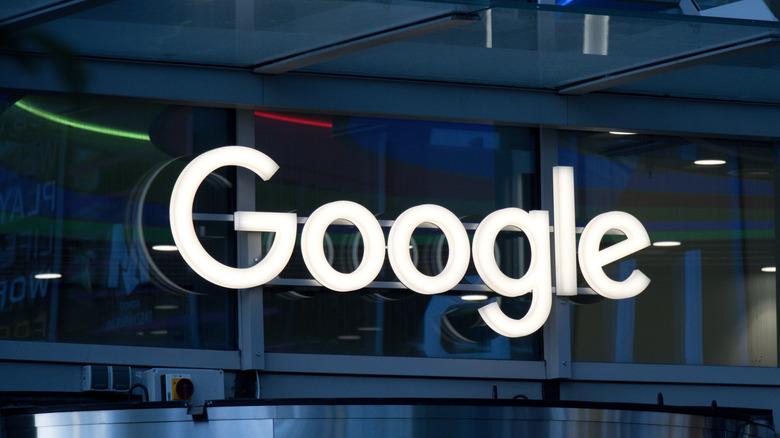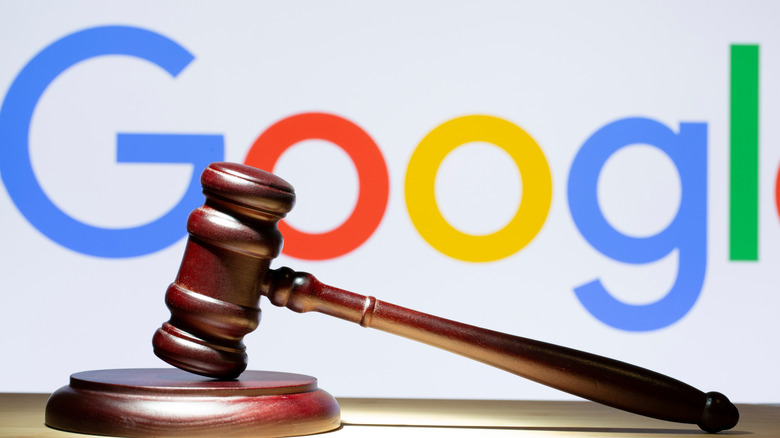Google's Invasion Of Privacy Trial Ends With A $425 Million Win For Cell Phone Users
Tech companies are no strangers to lawsuits, often over how they collect, use, and safeguard customer data. But few cases have been as far-reaching as the one now confronting Google. Earlier this month, a federal jury ruled that the company must pay $425.7 million for collecting data from users' smartphones even after they had opted out of tracking. The class action lawsuit, filed in July 2020, accused Google of violating assurances in its Web & App Activity setting, which is meant to let users control what information is shared. It's even one of the privacy settings we recommend you turn off before using Google. But plaintiffs argued that even with the setting disabled, Google continued gathering data through apps and services tied to its analytics and advertising tools. The class covered about 98 million Google accounts and 174 million devices, making it one of the largest privacy cases brought against a tech company to date.
The plaintiffs sought more than $31 billion in damages, claiming Google's disclosures were vague and misleading about how much control users actually had over their data privacy. Google countered that its policies were clear, insisting users had misunderstood how its products worked. "Our privacy tools give people control over their data, and when they turn off personalisation, we honour that choice," a spokesperson said. The company also argued the collected data was "nonpersonal" and "pseudonymous," stored in segregated, encrypted locations and not linked to individual identities.
The jury found Google liable on two of three privacy claims, though it ruled the company had not acted with malice. Hence, the ruling that Google shell out close to half a billion dollars.
Who's Getting Paid?
If the appeal doesn't overturn the verdict, the $425 million settlement will go to members of the certified class — those who were part of the lawsuit when it was filed. That total includes roughly $247 million for Android users and $178 million for non-Android users. Eligibility within that class is determined by three main criteria.
First, the individual must have had a personal Google account — not a work account or a supervised "Unicorn" account, which refers to accounts for children under 13. Second, they must have turned off or paused Web & App Activity (or its supplemental version) at least once between July 1, 2016, and September 23, 2024. Third, even after opting out, some of their data must have still been transmitted to Google via a non-Google app.
With the appeal still pending, there's no timeline for when payouts might happen, and there's always the possibility that the ruling could be overturned. For now, class members can only wait and see whether the verdict holds.
How to Protect Your Privacy Online
If anything, the Google verdict underscores how fragile online privacy really is. Even when you flip every switch and comb through every setting in the menu, your data is almost certainly still being collected somewhere. Google Analytics alone is embedded on more than half the websites on the internet, which means that the company's access extends far beyond your Gmail inbox, YouTube history, Maps location, or search queries.
But that doesn't mean you're powerless. You can reclaim some control over your privacy with a few consistent changes to your online habits. The first step is keeping your digital house clean: download fewer apps, and regularly uninstall the ones you no longer use. Fewer apps mean fewer opportunities for your data to be siphoned off. When you land on a new website and see that cookie banner, don't just tap "accept." Look for the toggles that let you turn off tracking where possible. The same goes for apps—once you've signed up, head into account settings and switch on whatever privacy controls exist. These settings evolve, so it's worth revisiting them every so often. For a stronger layer of protection, consider using a VPN. It encrypts your traffic and makes it harder for companies (or even hackers) to build a detailed profile of your activity.
If it's any comfort, regulators are paying closer attention to how Google handles user data. In 2022, the company agreed to a $391.5 million settlement with 40 U.S. states over similar allegations of misleading privacy practices. Whether these actions build into lasting limits on invasive data collection remains to be seen, but for now, the burden is still on users to stay vigilant.


